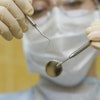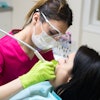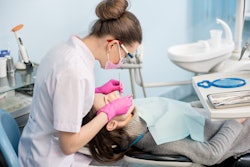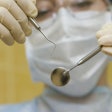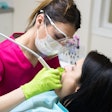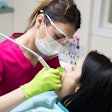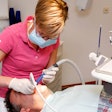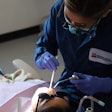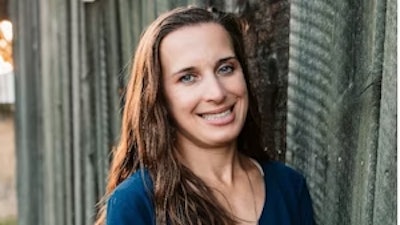
Until recently, registered dental hygienists (RDHs) have had to obtain individual state licensure for each state they would like to practice in. For many RDHs, this requirement was super frustrating if they wanted to provide better access to care for patients and they lived close to bordering state lines, were actively serving in the U.S. military, married someone who was actively serving in the U.S. military, or ever wanted to live somewhere else in the country and continue with their career. Often the question was asked, "If we are ultimately providing the same care, why can there not be one board that grants licensure in all 50 states and the U.S. territories?"
With the COVID-19 pandemic, numerous challenges struck the U.S. healthcare system, specifically dentistry, that altered the future of providing care. Some of these challenges became so popular that they became buzzwords and a positive or negative connotation was associated with the dental hygiene profession.
Words like "teledentistry," "burnout," "shortage," and "PPE" (personal protective equipment)were often seen in dental hygiene magazines, journals, websites, and other places during and after the height of the pandemic. Now, in 2024, another buzzword is starting to be frequently seen throughout our profession, hopefully, for the better … and that word is "compact." It is the idea of one dental hygiene license that is accepted by numerous states, which is close to happening.
The compact license for dental professionals was first introduced in January of 2023.1 The National Center for Interstate Compacts at the Council of State Governments is spearheading the project.1 The team of organizations drafting the license and its regulations included professionals, state regulators, staff from the initial spearheading group, and various representatives from professional organizations.1
Within months of its initial startup, states have swiftly moved to sign an agreement with a compact license. As of today, five states have agreed to participate in the compact license: Iowa, Washington, Tennessee, Wisconsin, and Virginia. As many as 12 other states are considering adopting the license and are waiting for their governing bodies to agree to it.1
This is an exciting time for our profession! Many argue that because so many states recognize the dire shortages of dental professionals, coupled with the lack of access to care for thousands, having one compact license is better for our society.
The compact licensure agreement states that seven states need to agree to it for it to be activated.2 How soon seven states accept it waits to be told. The regulations outline that those dental professionals who are licensed in one of the seven states (or more) signed into the compact will be granted licensure in all the other compacted states. Many dental professionals are viewing webinars and asking their state legislators to move quickly to become the last two remaining states to accept the compact license and get it activated.
Like current state dental licensing requirements, dental professionals are required to pass all national boards, jurisprudence examinations, hold a current CPR certification, and maintain continuing education credentials.2 Dental professionals will need to stay abreast of individual state requirements because if their active license lapses then, they may no longer be eligible for compact licensure.2
Any dental professional who wishes to learn more about the compact licensure requirements, pending state legislation, or how to get their state to agree to the dental compact license should contact the Council of State Governments.1,2
References
- News. Dentist and dental hygienists compact. Accessed March 11, 2024. https://ddhcompact.org/news/.
- Dentist and Dental Hygienist Compact Frequently Asked Questions. Accessed March 11, 2024. https://ddhcompact.org/wp-content/uploads/sites/31/2023/01/DDH-FAQ.pdf
Tracee S. Dahm, MS, RDH, is an adjunct clinical instructor for the North Idaho College School of Dental Hygiene in Coeur d’Alene, ID. She also works in private practice. Dahm has published articles in several dental journals, magazines, and a textbook. Her research interests include trends in dental hygiene and improving access to dental care for the underserved. She can be reached at [email protected].
The comments and observations expressed herein do not necessarily reflect the opinions of DrBicuspid.com, nor should they be construed as an endorsement or admonishment of any particular idea, vendor, or organization.


